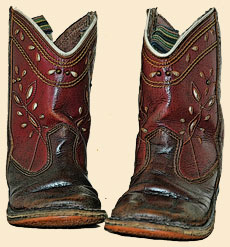
During the late 1950’s and early 1960’s rock and roll was the exciting new music, but little Suze Spencer missed all that. She was quite content being rocked to a peaceful slumber in the laps of America’s most beloved western music families. Suze grew up oblivious to electric music, without TV and, (only rarely) radio shows. The music she grew up with was live music her family played and sang together around the family table, in the backyard, on trail rides, around the campfire, at the beach, in the car, almost everywhere they went.
As a youngster, Suze had already memorized many of their songs by following the voice of a great uncle or auntie and copying their chord fingerings on her grandfather’s guitar. “They were a lively bunch, and I think rather thrilled that I loved the music so much.” She knew each of them by name . . . Great Uncles, Vern, Glenn and Austin, ‘Uncles’, Bob, Len, Billy and Bennie, and Great Aunties, Lucille, Florence, Nellie, Eva, Bertha and her Grandparents, John (Jack) and Louise Spencer. “Being raised by so many nurturing adults was fantastic,” said Suze, “and they all seemed to know the same music, which my grandfather told me was ‘who we are’.”
A Family of World-Renowned Musicians
No one had ever mentioned to Suze that her family were world renowned musicians, songwriters, recording artists, entertainers and the creators of an incredible body of musical work. It would be many years later, and much to her surprise, when she learned that her relatives were members of
The International Cowboys and
The Sons Of The Pioneers.
Many of Suze’s familiar childhood songs were unknown to the world outside of her musical family circles. During the early 1930s and through the 1940s, some of their music was used in western films.
A Legacy Lost
It was a most prolific songwriting period, and many songs were written with their unusual and complicated harmony style in mind. However, some of their best work ended up as clips on the cutting room floor, never to be seen or heard by the public again.
With a minimum one time payment, her family had signed over their rights to these songs, thinking that the most money to be made was if their song survived the final cut and appeared on film. Sadly, many did not, and royalty payments would be required if they were to record the songs themselves, which was unaffordable.
“I can only imagine how distressing this must have been to them. With that realization, I was even more determined to bring the songs back to life . . . and so I began the search to document the material” said Suze.

 During the late 1950’s and early 1960’s rock and roll was the exciting new music, but little Suze Spencer missed all that. She was quite content being rocked to a peaceful slumber in the laps of America’s most beloved western music families. Suze grew up oblivious to electric music, without TV and, (only rarely) radio shows. The music she grew up with was live music her family played and sang together around the family table, in the backyard, on trail rides, around the campfire, at the beach, in the car, almost everywhere they went.
As a youngster, Suze had already memorized many of their songs by following the voice of a great uncle or auntie and copying their chord fingerings on her grandfather’s guitar. “They were a lively bunch, and I think rather thrilled that I loved the music so much.” She knew each of them by name . . . Great Uncles, Vern, Glenn and Austin, ‘Uncles’, Bob, Len, Billy and Bennie, and Great Aunties, Lucille, Florence, Nellie, Eva, Bertha and her Grandparents, John (Jack) and Louise Spencer. “Being raised by so many nurturing adults was fantastic,” said Suze, “and they all seemed to know the same music, which my grandfather told me was ‘who we are’.”
During the late 1950’s and early 1960’s rock and roll was the exciting new music, but little Suze Spencer missed all that. She was quite content being rocked to a peaceful slumber in the laps of America’s most beloved western music families. Suze grew up oblivious to electric music, without TV and, (only rarely) radio shows. The music she grew up with was live music her family played and sang together around the family table, in the backyard, on trail rides, around the campfire, at the beach, in the car, almost everywhere they went.
As a youngster, Suze had already memorized many of their songs by following the voice of a great uncle or auntie and copying their chord fingerings on her grandfather’s guitar. “They were a lively bunch, and I think rather thrilled that I loved the music so much.” She knew each of them by name . . . Great Uncles, Vern, Glenn and Austin, ‘Uncles’, Bob, Len, Billy and Bennie, and Great Aunties, Lucille, Florence, Nellie, Eva, Bertha and her Grandparents, John (Jack) and Louise Spencer. “Being raised by so many nurturing adults was fantastic,” said Suze, “and they all seemed to know the same music, which my grandfather told me was ‘who we are’.”
